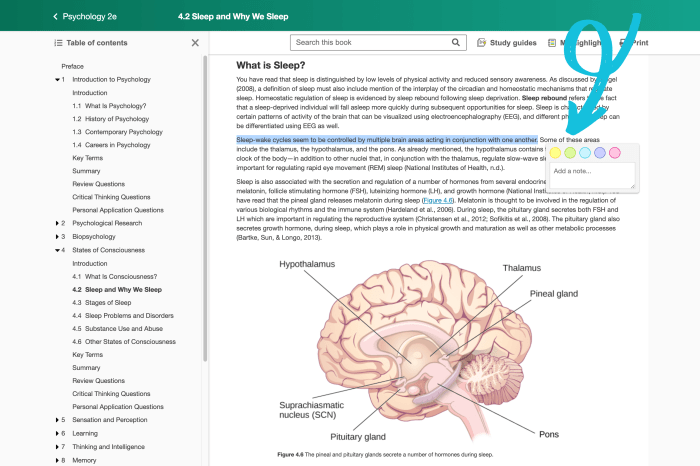The OpenStax Psychology 2e Answer Key is an invaluable resource for students seeking to enhance their understanding of the complex and fascinating field of psychology. This guide provides comprehensive solutions to end-of-chapter questions, fostering a deeper comprehension of key concepts, theories, and research methods.
Delving into the intricate tapestry of psychological knowledge, this answer key unravels the fundamental principles that govern human behavior, equipping readers with a profound understanding of the mind and its workings.
Introduction

Define the term “OpenStax Psychology 2e Answer Key”
The OpenStax Psychology 2e Answer Key is a comprehensive resource that provides solutions to the end-of-chapter questions and exercises found in the OpenStax Psychology 2e textbook. It is designed to assist students in their understanding of psychological concepts and theories, and to reinforce their learning.
Explain the purpose and benefits of using an answer key for studying psychology
Using an answer key for studying psychology offers several benefits, including:
- Self-Assessment:Answer keys allow students to assess their understanding of the material and identify areas where they need further study.
- Reinforcement of Learning:By working through the questions and checking their answers, students can reinforce the concepts they have learned.
- Time Management:Answer keys can help students manage their study time effectively by providing quick access to solutions, allowing them to focus on understanding the material rather than spending excessive time on problem-solving.
- Improved Grades:Using answer keys can help students improve their grades by ensuring that they have a solid understanding of the course material and are well-prepared for exams.
Content Analysis: Openstax Psychology 2e Answer Key

Identify the different sections and topics covered in the OpenStax Psychology 2e textbook
The OpenStax Psychology 2e textbook is divided into five main sections, each covering a broad area of psychology:
- Introduction to Psychology
- Biological Bases of Behavior
- Cognition and Learning
- Motivation and Emotion
- Social Psychology
Within each section, there are chapters that delve into specific topics, such as:
- Biological Bases of Behavior:Neurons and Synapses, The Nervous System, The Endocrine System, and Sleep and Dreaming.
- Cognition and Learning:Memory, Language, Problem Solving, and Intelligence.
- Motivation and Emotion:Hunger and Eating, Sexual Behavior, and Emotion.
- Social Psychology:Social Cognition, Social Influence, and Group Processes.
Key Concepts and Theories
Elaborate on the major psychological theories and principles discussed in the textbook
The OpenStax Psychology 2e textbook covers a wide range of psychological theories and principles, including:
- Behaviorism:The study of observable behavior and the environmental factors that influence it.
- Cognitive Psychology:The study of mental processes, such as perception, memory, and thinking.
- Psychodynamic Theory:The study of unconscious processes and their influence on behavior.
- Humanistic Psychology:The study of human potential and growth.
- Social Cognitive Theory:The study of how social factors influence thoughts, feelings, and behaviors.
Discuss the historical context and significance of these theories
These theories have played a significant role in the development of psychology as a scientific discipline. Behaviorism, for example, was a dominant force in the early 20th century and helped to establish psychology as an objective science. Cognitive psychology emerged in the mid-20th century and has since revolutionized our understanding of mental processes.
Psychodynamic theory, developed by Sigmund Freud, has had a profound impact on our understanding of the unconscious mind and its influence on behavior. Humanistic psychology, which emerged in the 1950s, has emphasized the importance of human potential and growth. Social cognitive theory, developed by Albert Bandura, has highlighted the role of social factors in shaping behavior.
Explain how these theories have shaped our understanding of human behavior
These theories have had a profound impact on our understanding of human behavior. Behaviorism has helped us to understand how environmental factors can shape behavior. Cognitive psychology has given us insights into how we perceive, remember, and think. Psychodynamic theory has helped us to understand the role of unconscious processes in behavior.
Humanistic psychology has emphasized the importance of human potential and growth. Social cognitive theory has shown us how social factors can influence our thoughts, feelings, and behaviors.
Research Methods and Statistics
Describe the various research methods used in psychology
Psychologists use a variety of research methods to study human behavior, including:
- Observational Methods:Observing and recording behavior in natural or controlled settings.
- Experimental Methods:Manipulating variables to study their effects on behavior.
- Correlational Methods:Examining relationships between variables without manipulating them.
- Case Studies:In-depth studies of individuals or small groups.
- Surveys:Collecting data from a large sample of people using questionnaires.
Explain the principles of statistical analysis and how they are applied in psychological research
Statistical analysis is used to analyze data and draw conclusions from research studies. Statistical principles include:
- Descriptive Statistics:Summarizing and describing data.
- Inferential Statistics:Drawing conclusions about a population based on a sample.
- Hypothesis Testing:Using statistical tests to determine whether there is a significant difference between groups or variables.
Provide examples of how research methods and statistics have contributed to the field of psychology
Research methods and statistics have played a vital role in the development of psychology. For example, observational methods have been used to study animal behavior, leading to insights into the evolution of human behavior. Experimental methods have been used to study the effects of different treatments on mental disorders, leading to the development of new therapies.
Correlational methods have been used to study the relationship between personality traits and job performance, leading to the development of new hiring practices. Case studies have been used to study rare or unusual cases, leading to insights into the nature of mental illness.
Surveys have been used to study public opinion on psychological issues, leading to the development of new policies and programs.
Common Queries
What is the OpenStax Psychology 2e Answer Key?
The OpenStax Psychology 2e Answer Key is a comprehensive guide that provides solutions to end-of-chapter questions in the OpenStax Psychology 2e textbook.
How can the OpenStax Psychology 2e Answer Key help me in my studies?
The answer key provides detailed explanations of key concepts, theories, and research methods, enhancing your understanding of the material and improving your performance on exams.
Is the OpenStax Psychology 2e Answer Key available online?
Yes, the answer key is available online in various formats, including PDF and ePub.